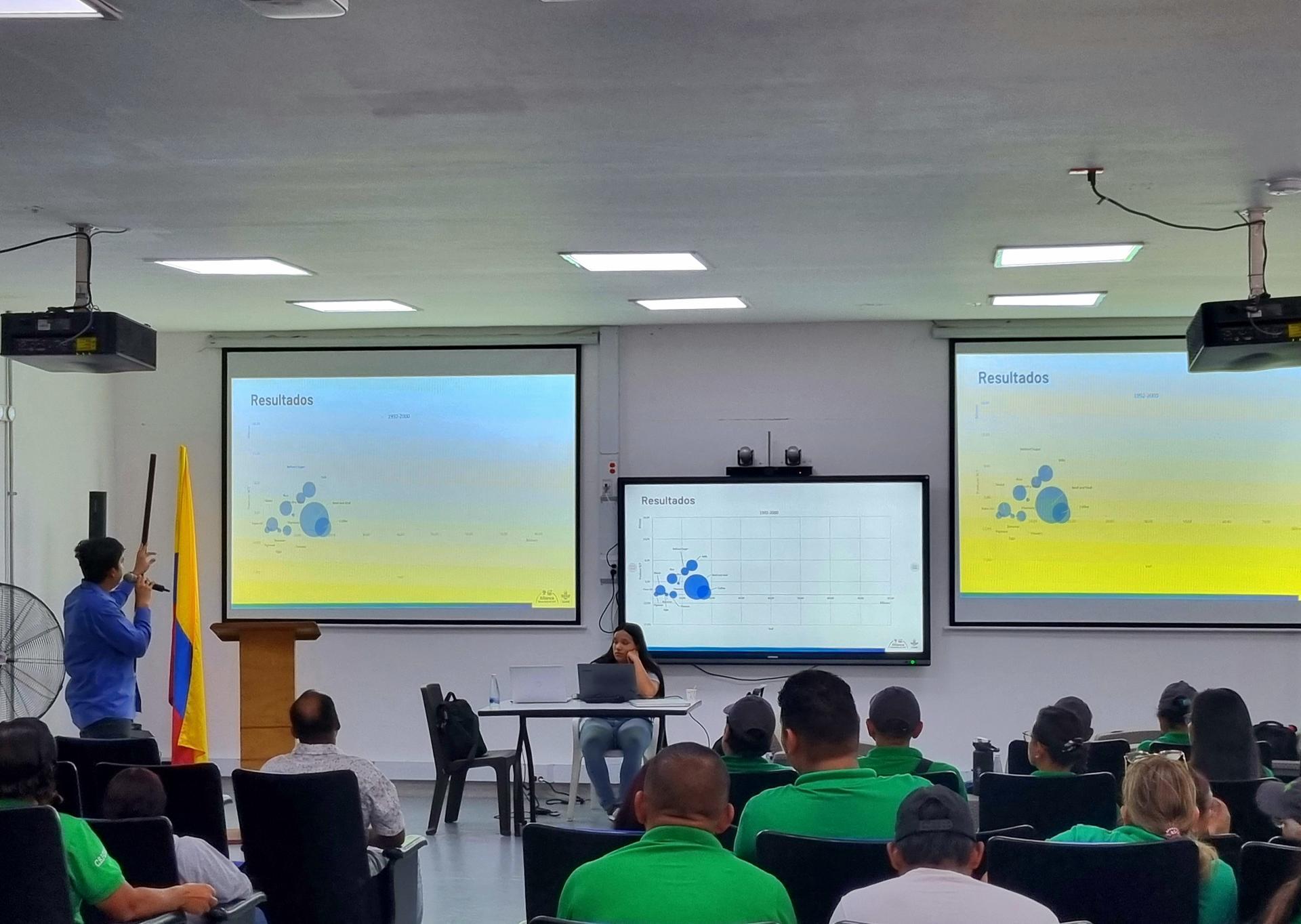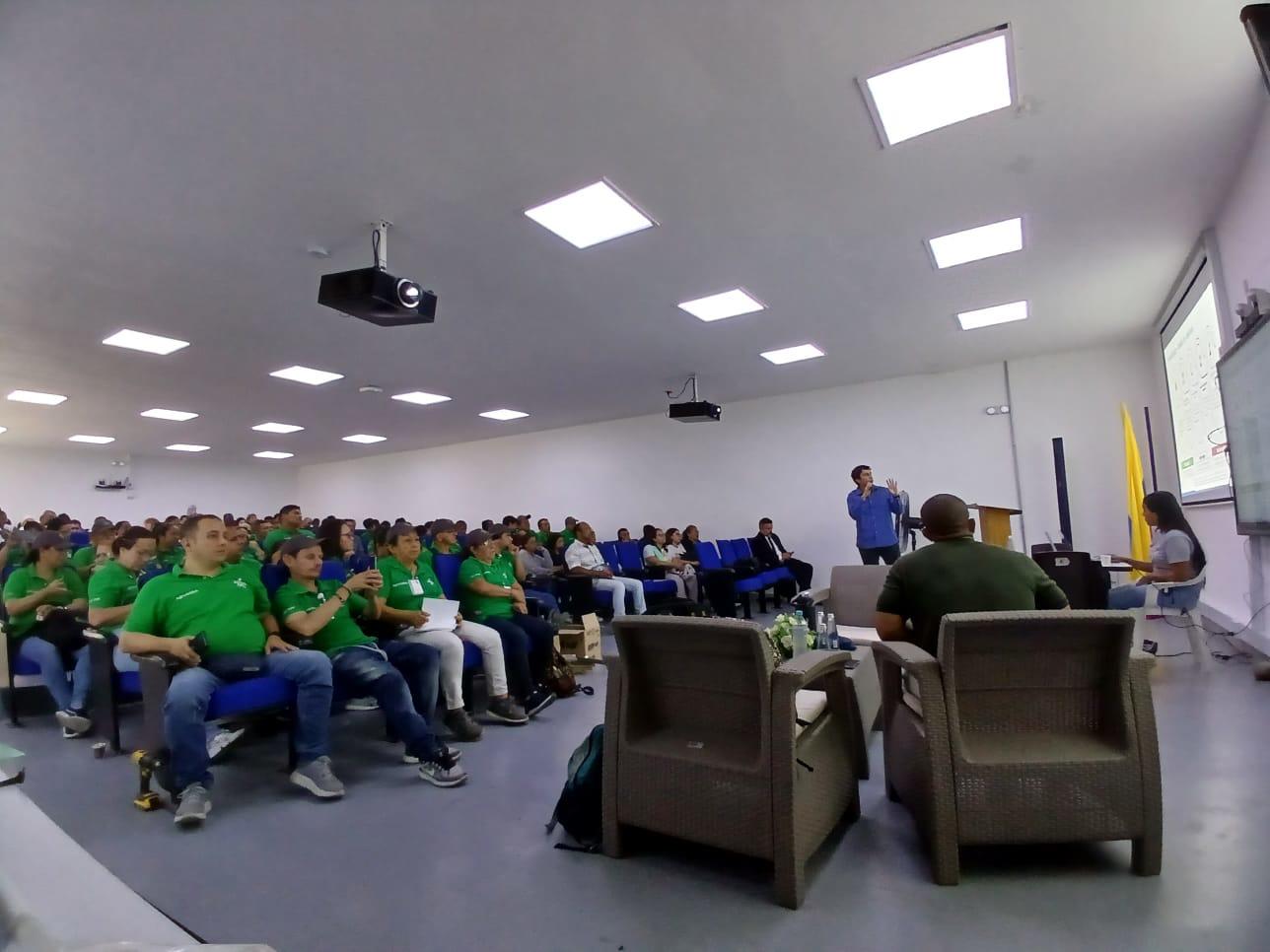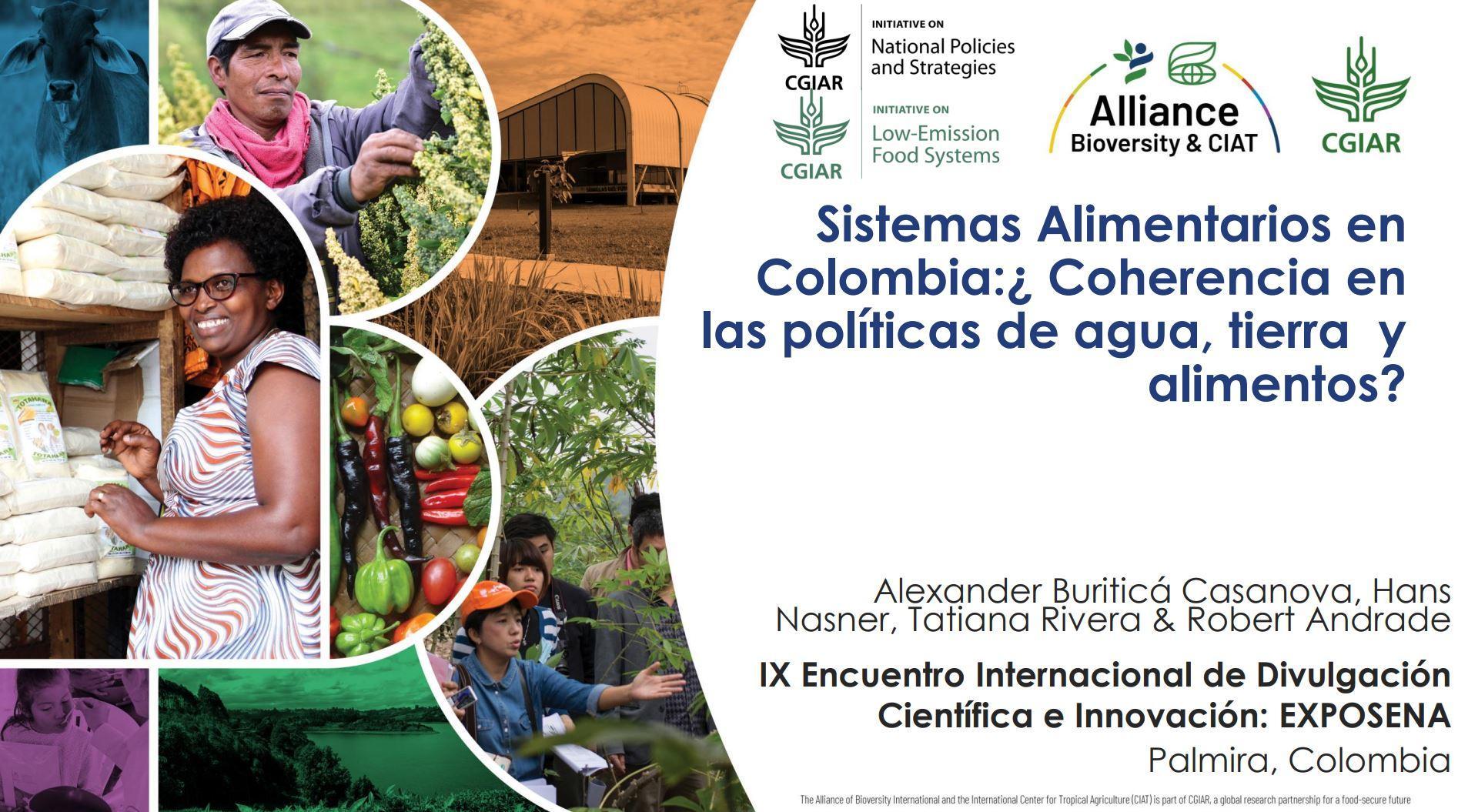Blog Connecting Science and Innovation: Insights from EXPOSENA 2023

On November 29th in Palmira, Valle del Cauca, Dr. Alexander Buritica attended EXPOSENA 2023, an international event for academic, scientific, and cultural exchange that intends to facilitate the integration and advancement of individuals across SENA, productive sectors, and educational realms, all pivotal in bolstering regional, national, and international socio-economic and technological development. During this day the event was centered around "Bioeconomy, Food Security, and Sustainability: Contributions to Sustainable Rural Development in Valle del Cauca". Here, he contributed to bringing insights into policy coherence and impact with the results of his study "Food Systems in Colombia: Coherence in Water, Land, and Food Policies.", these case studies contribute to the ongoing discussion on establishing policy coherence, integrating policy tools, and responding to policy demands and crises. This involves fostering synergy and complementarity across policies within the national landscape. The focus is on understanding how to establish and maintain policy coherence, particularly regarding food systems and related issues.
On November 28th- 30th in Palmira, Valle del Cauca, EXPOSENA 2023, an esteemed international event, unfolded, drawing collaboration from Cuba, Brazil, Ecuador, and Mexico. This gathering fosters academic, scientific, and cultural exchanges while spotlighting the invaluable role of knowledge acquisition within formative, applied, and technological research projects. These endeavors stand pivotal in realizing the tangible value pledged by the Industrial Biotechnology Center (CBI), addressing the needs of companies and workers in Palmira and its vicinity. They facilitate the integration and advancement of individuals across SENA, productive sectors, and educational realms, all pivotal in bolstering regional, national, and international socio-economic and technological development.
This international technological exposition allows SENA to fulfill its fundamental mandate: training, researching, and engaging in social projection initiatives based on globalized knowledge. Through this event, SENA showcases projects undertaken by the BITI research group, elucidating their contribution to advancing the productive sector. For further details, please refer to the official EXPOSENA webpage: ExpoSena CBI

Insights into policy coherence and impact
The alliance participated in the second day of an event centered on "Bioeconomy, Food Security, and Sustainability: Contributions to Sustainable Rural Development in Valle del Cauca". During this session, Dr. Alexander Buritica presented findings from the study "Food Systems in Colombia: Coherence in Water, Land, and Food Policies." The study included two case studies from the initiative: low-emission food system and National Policy Strategies (NPS). These case studies contribute to the ongoing discussion on establishing policy coherence, integrating policy tools, and responding to policy demands and crises. This involves fostering synergy and complementarity across policies within the national landscape. The focus is on understanding how to establish and maintain policy coherence, particularly regarding food systems and related issues.
The initial study highlights that within Colombia's agri-food system, there exists a notable normative and horizontal coherence between the water and food sectors and CGIAR's five focus areas. A positive relation emerges between policy formulation and its impact within these sectors, specifically addressing three pivotal dimensions: poverty reduction, livelihoods, and employment; environmental health and biodiversity; and nutrition, health, and food security. In the context of sustainable development goals, the scrutinized policies are designed to yield favorable outcomes across five of the seventeen objectives, encompassing No Poverty (SDG 1), Zero Hunger (SDG 2), Good Health and Well-being (SDG 3), Decent Work and Economic Growth (SDG 8), and Life on Land (SDG 15).
Despite this favorable association, Colombia demonstrates subpar regional performance in attaining SDG 1 (No Poverty), marked by a declining trend. This raises apprehensions that, despite normative and horizontal coherence in the realm of poverty reduction, livelihoods, and employment, policies may not seamlessly translate into tangible benefits for the populace. There is a gap between policies' outlined objectives and strategies and their actual implementation impact. Furthermore, it underscores the need for land sector policies to integrate this impact area and align with these development goals in their guidelines. Consequently, a substantial elevation in implementation levels is essential for these policies to manifest into palpable positive effects on the population.
The second study aims to reveal how congruous are Colombian agricultural public policies from the viewpoint of the GHG emission the extent to which policy transfers align with greenhouse gas emissions levels in Colombia. The analysis utilizes secondary data from 1992 to 2018, including information on emissions, agricultural policy transfers, production value, and productivity of essential agricultural commodities. By comparing the production value of these commodities, the incentives provided through policy transfers, and the financial equivalent of emissions, insights into policy consistency are gained. The findings reveal that coffee, beef, and milk collectively contribute to 40% of the overall production value. Regarding greenhouse gas emissions, beef production accounts for the majority, with 56% of the emissions allocated, followed by milk with 11.7% and rice with 7.7%. Furthermore, the commodities that receive the most support through policy transfers are milk at 20.1%, rice at 19.9%, and refined sugar at 16%. Consequently, agricultural public policy appears to prioritize commodities with high value and high emissions, particularly milk, while supporting those with low value and high emissions, such as rice.

Future directions and challenges
As a final remark, Dr. Ronald Soleno from SENA added that “in terms of policies that could foment bioeconomy in the country, Currently, there are policies linked to integral rural reform that are quite interesting, aiming to support and generate processes involving producers in a cleaner, more environmentally sustainable production. Within these policies, there are plans related to technical assistance, crucial for producers, promoting a solidary economy, and addressing marketing strategies to connect producers more closely with consumers.
However, ultimately, I believe that the framework provided by COMPES and the green growth policy will help in defining this roadmap. Unfortunately, there's a need to implement these policies at the departmental level to articulate and drive specific initiatives, persuade various stakeholders, and effectively outline this issue”.
It is relevant that the Alliance participates in these types of events as an additional means to contribute to regional development by bringing to the table the ongoing discussion on establishing policy coherence, integrating policy tools, and responding to policy demands and crises. These meetings allow the dissemination of research projects that encourage and promote debate around food security and policy coherence playing a pivotal role in advancing technological research and development that may help local authorities and SENA to consider the challenges that remain in including a component of food security, bioeconomics, and generally to be more aligned with the needs of the population. Ultimately, in translating policy objectives into tangible benefits for the population, particularly in meeting sustainable development goals.

